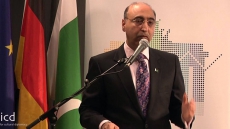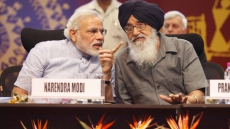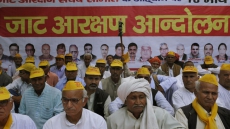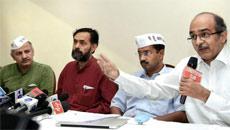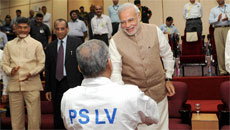Leading Rajasthani and Hindi writer Nand Bhardwaj on Thursday returned his Sahitya Akademi award to denounce "rising religious intolerance and attack on freedom of expression", even as the CPI-M hailed the protesting writers for doing the country proud.
In a letter addressed to Sahitya Akademi, Bhardwaj said: "There is growing concern among writers and intelligentsia against attacks and killing by hardline communal forces and the failure of Sahitya Akademi to stand up for them (writers).
"I praise the writers who have returned the awards, and I also want to return my award, which I won in 2004 for my Rajasthani novel 'Samhi Khulto Marag'," Bhardwaj said. He also sent back the prize money of Rs.50,000.
Bhardwaj has become the latest of Indian writers drawn from various languages including Hindi, Malayalam, Marathi, Kannada, Punjabi, Bengali, Urdu, Tamil, Gujarati and Assamese to return their awards, primarily those conferred by Sahitya Akademi.
Most were upset over the Sahitya Akademi's failure to come out in defence of M.M. Kalburgi after he was murdered in Karnataka on August 30. A few also spoke out against the lynching of a Muslim man near Delhi over rumours that he killed a cow and ate beef.
In Panaji, Goa writers came down on what they said was a rising culture of intolerance towards freedom of speech but said they would not be returning their awards for now.
Eleven Konkani award-winning writers told the media that they would create a lobby of other creative artists and other Padma award winners from Goa.
"We are disheartened by the lack of adequate response of the Sahitya Akademi following the murder of Kalburgi," writer Damodar Mauzo said.
"While we have resolved not to return our awards, we are conveying our sentiments to the Akademi. We want them to speak out at the meeting of the committee which will be held soon," he said.
The press conference was also addressed by writers Pundalik Naik, Dilip Borkar, Datta Naik, Hema Naik, Nagesh Karmali and N. Shivdas. They also vowed to protest at the forthcoming 46th International Film Festival of India (IFFI).
West Bengal Governor K.N. Tripathi, however, accused writers returning the awards of being politically motivated.
"Several incidents occurred in the country from the time they received the award... It makes one wonder if there is a small group who are lobbying for the return of these awards," Tripathi said in Kolkata.
"How it is that none of them were prompted to return the awards earlier and why now?" he asked. "Why did they not return the award when the (2013) Muzaffarnagar riots happened?"
The CPI-M, however, hailed the Indian writers for doing the country proud.
"What is heartening about the writers' protest action is the range and variety of the writers who have stood up to be counted," an editorial in the CPI-M organ "People's Democracy" said.
"What binds them is their deep moorings in secular and democratic values. It is a clear and bold expression of how the country will not succumb to Hindutva authoritarianism," it said.
"By returning the awards bestowed on them and by resigning from the positions they hold in the Akademi, they have also spoken out against the growing attacks on plurality and cultural diversity by the Hindutva forces," the Communist Party of India-Marxist said.
The protest began with important Kannada writers returning their awards to the Kannada Sahitya Parishat on the slow progress in the Kalburgi murder investigation.
